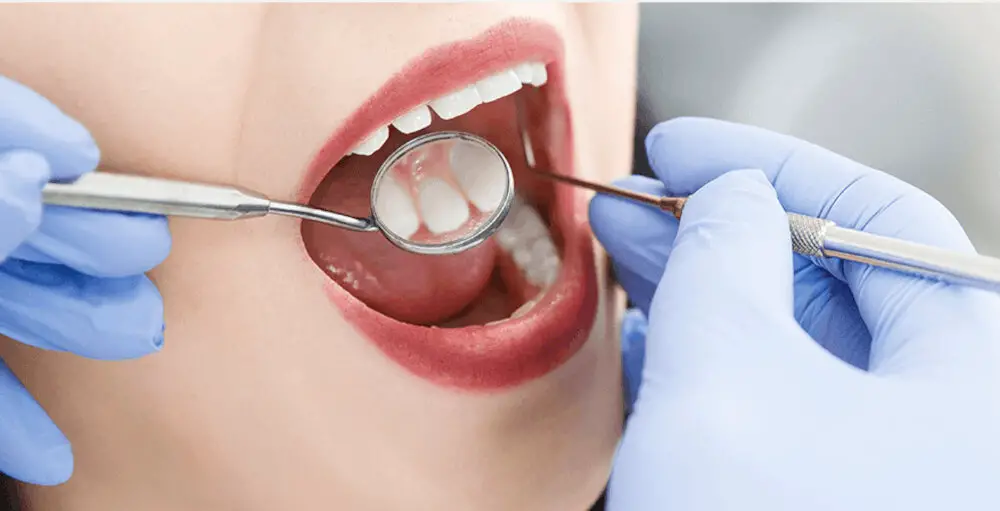Why Do Guinea Pigs Chatter Teeth When Held? Understanding This Common Behavior

Guinea pigs, also known as cavies, are popular pets among animal lovers. These small and adorable creatures are known for their playful and curious nature. However, if you have ever held a guinea pig, you may have noticed a strange behavior – teeth chattering. While it may seem alarming, this behavior is actually quite common, and understanding why this happens can help you better care for your furry friend. Teeth chattering in guinea pigs is a form of communication, and it can indicate a variety of things. It can be a sign of happiness, anxiety, fear, or even annoyance. As a responsible pet owner, it is important to understand what your guinea pig is trying to communicate with this behavior. By learning more about this common behavior, you can build a stronger bond with your pet, and provide them with the care and attention they need to thrive. So, let’s dive in and explore why guinea pigs chatter their teeth when held.
Guinea pig teeth chattering is a common behavior that is often seen when the animal is held or frightened. This behavior is characterized by a rapid grinding of the teeth, which produces a distinct chattering sound. While it may seem like an alarming behavior, it is actually a natural response to stress or fear. Understanding guinea pig teeth chattering is important for pet owners because it allows them to recognize when their pet is feeling anxious or uncomfortable. By identifying this behavior, owners can take steps to reduce stress and improve their guinea pig’s overall well-being. Additionally, understanding guinea pig teeth chattering can help owners to build a stronger bond with their pet by learning to read and respond to their needs.
Guinea pigs are adorable and fascinating pets, but their behavior can often be misunderstood. One of the most common misconceptions about guinea pigs is their teeth chattering behavior when held. Many people assume that this behavior is a sign of aggression or fear, but in reality, it is a natural response to stress and anxiety. Guinea pigs use teeth chattering as a way to communicate their discomfort or displeasure with a particular situation. It is important for pet owners to understand this behavior and take appropriate steps to ensure their guinea pigs feel safe and comfortable in their environment. By providing a calm and secure living space, and handling them gently and respectfully, pet owners can help their guinea pigs feel more relaxed and content.
Communication

Effective communication is an integral part of any relationship, including the one between guinea pigs and their owners. Guinea pigs are social animals that thrive on interaction with their human companions. It is crucial to understand their communication methods to provide them with the best care possible. One common behavior in guinea pigs is chattering teeth when held. This behavior can be misunderstood as a sign of aggression, but it is a form of communication that guinea pigs use to express their discomfort or anxiety. By understanding this behavior, owners can adjust their handling techniques and create a more comfortable environment for their pets. Guinea pigs use various forms of communication, such as vocalizations, body language, and scent marking, to convey their messages. Chattering teeth is one of the most noticeable behaviors that owners can observe. This behavior occurs when guinea pigs are uneasy, anxious, or stressed. It is often mistaken for a sign of aggression, but it is a natural response to fear or discomfort. Owners can help their pets feel more comfortable by providing them with a safe and secure environment, gentle handling, and positive reinforcement. By understanding guinea pig communication, owners can build a stronger bond with their pets and ensure their well-being.
Guinea pigs are social creatures that use various forms of communication to interact with each other. One of the most common behaviors observed in guinea pigs is teeth chattering. This behavior is often misunderstood as a sign of fear or aggression, but in reality, it is a way for guinea pigs to communicate with each other. Teeth chattering is commonly used as a warning sign or a way to express excitement. For example, when a guinea pig is introduced to a new environment or meets another guinea pig for the first time, it may chatter its teeth as a way to express excitement and interest. Similarly, if a guinea pig feels threatened or scared, it may also chatter its teeth as a warning to other guinea pigs. Overall, teeth chattering is an important form of communication for guinea pigs and plays a significant role in their social interactions with each other.
Communication is a vital aspect of any social interaction, and guinea pigs are no exception to this. These small mammals have different types of communication methods, each with its own unique meaning. For example, when a guinea pig chatters its teeth while being held, it is a sign of anxiety or fear. This behavior is often accompanied by a stiff body posture, and it means that the guinea pig feels threatened or uncomfortable in its current situation. On the other hand, when a guinea pig purrs, it is a sign of contentment and relaxation. This behavior is often observed when the guinea pig is being petted or held gently. Other forms of guinea pig communication include vocalizations, body language, and scent marking. Understanding these different types of communication can help guinea pig owners provide the best possible care for their pets.
Fear and Anxiety

Fear and anxiety are common emotions experienced by guinea pigs, especially when they are held. As prey animals, guinea pigs have a natural instinct to be cautious and alert in unfamiliar situations. Being held can trigger feelings of vulnerability and panic, leading to a range of symptoms such as teeth chattering, trembling, and attempting to flee. Guinea pigs may also display defensive behaviors like biting or scratching if they feel threatened or scared. It is important for owners to be aware of their guinea pig’s body language and behavior, and to handle them gently and calmly to avoid causing unnecessary stress. While teeth chattering is a common sign of fear and anxiety in guinea pigs, it can also be a way for them to communicate with their owners. Some guinea pigs will chatter their teeth as a warning sign when they feel uncomfortable or threatened, while others may do it as a way to express excitement or anticipation. It is important to observe your guinea pig’s behavior and context in which they are chattering their teeth to understand what they are trying to communicate. Providing a safe and comfortable environment for your guinea pig, along with positive reinforcement and socialization, can help reduce their fear and anxiety and improve their overall well-being.
Guinea pigs are social animals that communicate through various means, including body language and vocalizations. One of the most common behaviors exhibited by guinea pigs is teeth chattering, which can be an indication of fear or anxiety. When held, guinea pigs may feel threatened or uncomfortable, causing them to chatter their teeth. This behavior is typically accompanied by other signs of distress, such as a tense body posture or attempts to escape. It is important for guinea pig owners to understand the meaning behind this behavior so they can take steps to make their pets feel more comfortable and secure. Providing a safe and comfortable environment, handling guinea pigs gently and frequently, and giving them plenty of opportunities to socialize with other animals can all help to reduce anxiety and prevent teeth chattering in guinea pigs.
Guinea pigs may chatter their teeth when held due to a variety of reasons, including fear, anxiety, discomfort, or even excitement. This behavior is a common way for them to communicate their feelings, and it’s essential to understand their body language to ensure their well-being. To address this issue, it’s crucial to create a safe and comfortable environment for your guinea pig, providing them with enough space and hiding spots. You can also try to approach them calmly and gently, using positive reinforcement and treats to build trust and reduce their anxiety. Additionally, observing their behavior and consulting with a veterinarian can help identify any underlying health issues that may be causing the teeth chattering.
Happiness and Contentment

Happiness and contentment are two emotions that are often related but have distinct differences. Happiness is a feeling of joy and pleasure that comes from experiencing positive events or situations. Contentment, on the other hand, is a state of satisfaction and peace that comes from accepting and appreciating what one has. While happiness can be fleeting and dependent on external factors, contentment is a more stable and internal state of being that can provide a lasting sense of fulfillment. When it comes to guinea pigs, understanding the difference between happiness and contentment can help us better interpret their behaviors. For example, when a guinea pig chatters their teeth while being held, it can be a sign of both happiness and contentment. The sound is often associated with a relaxed and content guinea pig, but it can also indicate excitement and anticipation, which are emotions typically associated with happiness. By paying attention to other cues, such as body language and vocalizations, we can determine whether our guinea pig is experiencing happiness, contentment, or a combination of the two.
Teeth chattering in guinea pigs is not always a sign of aggression or fear. In fact, it can also indicate happiness and contentment. When guinea pigs are relaxed and comfortable, they may start chattering their teeth as a way of communicating their positive emotions. This behavior is often accompanied by other signs of contentment, such as relaxed body language and purring sounds. Therefore, it is important to observe your guinea pig’s overall behavior and body language before interpreting teeth chattering as a negative behavior. Understanding this behavior can help you better bond with your furry friend and provide them with a comfortable and happy environment.
Apart from chattering teeth, there are several other behaviors that can help determine if a guinea pig is feeling stressed or uncomfortable when being held. For instance, if the animal is struggling to escape, this could be a sign that they are feeling uneasy. Additionally, if the guinea pig is making high-pitched squeaks, this could indicate that they are in pain or distress. Another behavior to look out for is if the guinea pig is trying to hide or burrow into the person holding them. This could signal that they are afraid and seeking safety. It is important to pay close attention to these behaviors and respond accordingly to ensure the guinea pig feels safe and secure when being held.
Other Factors

Besides feeling threatened or anxious, there are other factors that can trigger a guinea pig to chatter its teeth. For instance, some guinea pigs may chatter their teeth when they are feeling cold or uncomfortable. This behavior is similar to how humans may shiver or clench their teeth when they are cold or nervous. Therefore, it is crucial to ensure that your guinea pig’s living space is adequately heated and that they have access to comfortable bedding. Additionally, guinea pigs may also chatter their teeth when they are experiencing pain or discomfort. In this case, it is important to examine your guinea pig and seek veterinary attention if necessary. Another possible cause of teeth chattering in guinea pigs is excitement or happiness. Some guinea pigs may chatter their teeth when they are excited to see their owners or when they are anticipating a treat. This behavior is more commonly observed in younger guinea pigs, but some older guinea pigs may also exhibit this behavior. Therefore, it is important to pay attention to your guinea pig’s body language and vocalizations to determine whether their teeth chattering is a sign of anxiety or excitement. By understanding the different factors that can contribute to teeth chattering in guinea pigs, you can provide your pet with the necessary care and attention to keep them healthy and happy.
While guinea pigs may chatter their teeth as a sign of happiness or excitement, it is important to note that teeth chattering can also be a sign of illness or pain. Dental problems, such as overgrown teeth or tooth abscesses, can cause discomfort and lead to teeth chattering. Similarly, respiratory infections or other illnesses can also cause guinea pigs to shiver or chatter their teeth. If your guinea pig’s teeth chattering seems excessive or is accompanied by other symptoms such as lethargy or loss of appetite, it is important to take them to a veterinarian for a check-up.
Understanding guinea pig teeth chattering is crucial for every guinea pig owner since it is a common behavior that can indicate a variety of emotions. While some guinea pigs may chatter their teeth when they are happy and content, others may do so when they are feeling scared or anxious. Therefore, it is essential to pay attention to the context in which the chattering is occurring. Additionally, guinea pig owners should be aware that teeth chattering can also be a sign of pain or discomfort, which may indicate a need for medical attention. By recognizing and interpreting guinea pig teeth chattering, owners can better understand and meet the needs of their beloved pets, ensuring their overall health and well-being.
As a guinea pig owner, it’s essential to pay attention to your pet’s behavior and understand their language. Guinea pigs may not be able to communicate through words, but they use various sounds and body language to convey their feelings. By observing and learning from your guinea pig’s behavior, you can build a stronger bond with your pet and provide them with a comfortable and happy life. When your guinea pig chatters their teeth while being held, it’s essential to understand what this behavior means to address any underlying issues. This behavior could indicate fear, anxiety, or discomfort, and it’s crucial to identify the root cause and provide a safe and secure environment for your pet. Therefore, it’s essential to pay attention to your guinea pig’s behavior and learn their language to ensure their well-being.
Conclusion

In conclusion, understanding why guinea pigs chatter their teeth when held is crucial to providing them with the appropriate care and ensuring their well-being. This common behavior is a complex communication method that can convey various emotions, such as fear, anxiety, or pleasure. It is essential to approach guinea pigs with patience and gentleness and to respect their boundaries. By doing so, we can build a strong bond with these adorable creatures and create a harmonious environment where they can thrive. So, let us embrace the unique characteristics of our furry friends and appreciate their charming personalities, including their toothy chatter.







